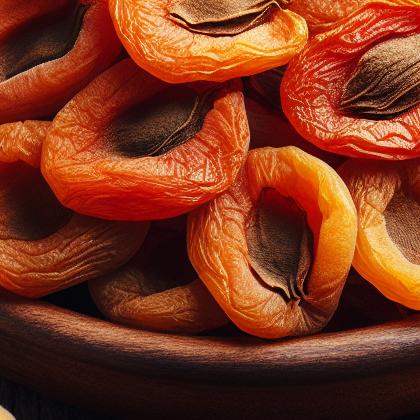Showing results for 'Dried Apricots'
close
Dried Apricots

An apricot is a fruit or the tree that bears the fruit. Usually, an apricot tree is from the tree species Prunus armeniaca, but the species Prunus brigantina, Prunus mandshurica, Prunus mume, and Prunus sibirica are closely related, have similar fruit, and are also called apricots.
Dried Apricots Pairs With:
Food Item
Flavor Affinity Level
Dried Apricots Properties:
| Food Property | Type | Description |
|---|---|---|
| Flavor Profile | Sweet | Dried apricots have a naturally sweet flavor due to their high sugar content, which becomes more concentrated during the drying process. |
| Sour | Dried apricots may have a slight sour undertone, especially if they are unsulfured and dried naturally without added sugars. | |
| Texture | Moisture | Dried apricots have a low moisture content, which contributes to their chewy and slightly leathery texture. |
| Nutritional Value | Fiber | Dried apricots are high in dietary fiber, which can aid in digestion and promote feelings of fullness. |
| Micronutrients | Dried apricots contain various micronutrients such as vitamin A, vitamin E, and potassium, which contribute to overall health and well-being. | |
| Color | Natural Pigments | Dried apricots may have a dark orange to brown color, depending on the drying method used. |
| Aroma | Volatile Compounds | Dried apricots have a sweet and fruity aroma, with hints of caramelization from the drying process. |
Food Pairing App - Version 1.2.0
